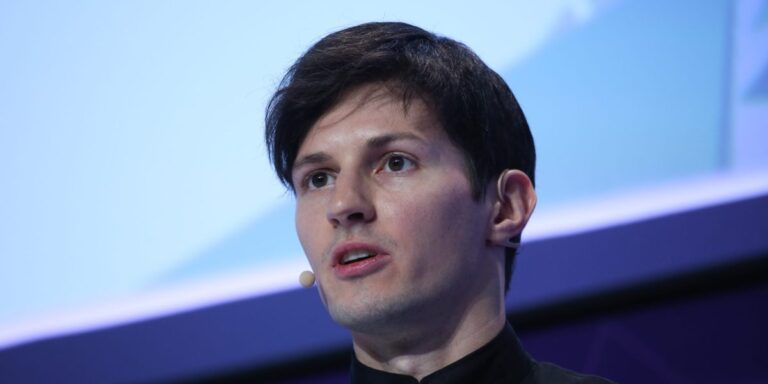A French court has indicted Telegram CEO Pavel Durov on a series of charges for his “complicity” in a series of illegal activities that took place on the platform. Authorities have accused Durov of aiding drug trafficking, disseminating child sexual abuse material, and promoting organized crime. Durov is also accused of obstructing an investigation into his company.
The 39-year-old’s arrest marks one of the first times a CEO of a major online platform has been held personally and criminally responsible for the content his company hosts. Telegram’s role as a secure encrypted messaging service, combined with the company’s aversion to content moderation, made it a breeding ground for the illegal activities alleged by French prosecutors, legal experts said.
Other online platforms and social media companies may have faced similar challenges from objectionable or even illegal activity on their platforms, but never to the extent that Telegram has, said Megan Squire, vice director of the Southern Poverty Law Center, who studies online extremism. “Telegram is an outlier in many ways,” Squire said.
Telegram operates differently from other platforms because it has little content moderation and a reputation for being uncooperative with law enforcement and watchdogs. Durov said child sexual abuse content and incitement to violence are prohibited on Telegram.
“Online extremist groups love the lack of content moderation,” said Squire, whose software tracks 30,000 extremist groups on Telegram. “It’s kind of a free-for-all there.”
Durov’s arrest and Telegram’s crackdown appear to undermine the idea that platforms are not publishers, a notion that has long been seen as a linchpin of online regulation. The idea behind this distinction is intended to protect platforms from liability if illegal activity takes place on them without their knowledge. But it also means that platforms are responsible for taking steps to stop illegal activity once they become aware of it, according to Alain Walter, a tech lawyer at the Paris-based law firm Walter Biret. It is precisely on this point that Telegram has run afoul of the French authorities.
“If you do not cooperate with the French authorities when they make a formal request for information related to the content of your posts, you are obstructing the French police and the French judicial system,” Walters said. luck“So this is essentially criminal activity.”
Telegram did not respond to a request for comment. In a statement posted to a Telegram channel on Sunday, before Durov was indicted, the company said he had “nothing to hide” and that it had complied with EU law. “It is absurd to claim that the platform or its owners are responsible for the misuse of their platform,” the company wrote.
Other online platforms and social media companies have had challenges with content moderation, but few have been as stubborn as Telegram. Ahmed Baladi, co-head of the cybersecurity practice at Paris-based law firm Gibson Dunn, said Durov’s arrest was “due to the peculiarities of how Telegram operates.”
In addition to lacking content moderation, Telegram was also unresponsive to law enforcement and prone to refusing subpoenas and court orders, which Telegram’s investigation found were sent to a dedicated email address and rarely checked. The Wall Street Journal.
Squire said other major platforms like X and Meta never took such a hands-off approach as Telegram, and she attributes that company-wide ethos to Durov’s “extreme tech libertarianism.”
“This is different from what we’ve seen on other technology platforms,” Squire said.
Telegram has been somewhat responsive to pressure from Apple and Google to moderate content or face removal from their mobile app stores: In 2018, Apple removed Telegram from its App Store for a day for failing to moderate child pornography within the app, after which Telegram adjusted its content moderation policies.
But that still contrasts sharply with other platforms that devote huge resources to content moderation, including having teams of actual humans sift through the worst content posted to their sites. Even in the US, social media companies have shown some compliance with government scrutiny, testifying before Congress in January.
Walter said all of these companies acted legitimately and their CEOs have avoided criminal prosecution. “I don’t see myself seeing Zuckerberg in jail next month,” he said.
The new special issue features a Wall Street legend getting a dramatic makeover, tales of cryptocurrency shenanigans and badly behaved poultry royalty, and more.
Read the story.


